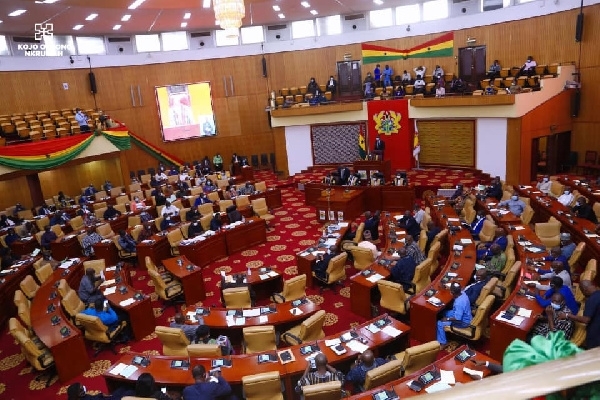Frustration-aggression hypothesis: The case of Ghana's 9th Parliament
 Parliament of Ghana
Parliament of Ghana
The Frustration-Aggression Hypothesis suggests that when individuals or groups are blocked from achieving their goals, they may experience frustration, leading to aggressive behaviour.
This concept is particularly relevant in understanding the recent developments in Ghana's 9th Parliament.
The 2024 election outcome has created a mental health vacuum among MPs of the two major political parties in Ghana, the NDC and NPP.
The overwhelming victory of the NDC and the abysmal performance of the NPP have led to cognitive dissonance, causing discomfort and misbehaviour as they struggle to reconcile their thoughts and emotions.
Traumatic events from the 2024 general elections can lead to changes in brain neurotransmitters and functions, resulting in impulsive, aggressive, or dissociative behaviour.
Intense emotions like anger, fear, or anxiety can overwhelm an individual's emotional regulation capacity, leading to dishonourable behaviour.
The desire to fit in, seek comfort, or cope with emotions can drive MPs' misbehaviour.
The shocking events from the 2024 elections can trigger unconscious conflicts, leading to misbehaviour as a way to cope with or express repressed emotions.
Given the current composition of the 9th Parliament, tensions and conflicts between the two dominant parties are inevitable.
The NDC's significant majority and the NPP's minority representation can lead to feelings of powerlessness and frustration among NPP members, potentially resulting in aggressive or disruptive behaviour.
The loss of experienced parliamentarians and the influx of new members can cause disorientation and frustration, leading to aggression.
The power dynamics between the NDC and NPP can also contribute to feelings of powerlessness and frustration among NPP members.
To address these issues, parliamentarians must seek psychological therapies to work collaboratively and harmoniously.
This will enable them to make effective use of taxpayer funds and uphold the dignity of their office.
References: Mind Diagnostics. (2025). Understanding the Frustration-Aggression Hypothesis. Dollard, J., Miller, N. E., & others. (1939). Frustration and aggression. Yale University Press.
By : Bismark Kwabla Kpobi
Executive Director, BSK Health Advocacy Foundation
Senior Mental Health Professional and Practitioner
Trending Features

When silence speaks louder than words
12:12
Project finance: A viable path to build Ghana’s infrastructure without overstretching or overburdening public Debt Ghana is facing mounting fiscal and infrastructure financing pressures
10:24
As awareness campaigns fade, new HIV infections rise
09:48
Rejoinder: Reject misleading calls to endorse vapes as tobacco harm reduction in Ghana's Public Health Act
23:34
The Moroccan transport wonder: AFCON 2025
10:54



